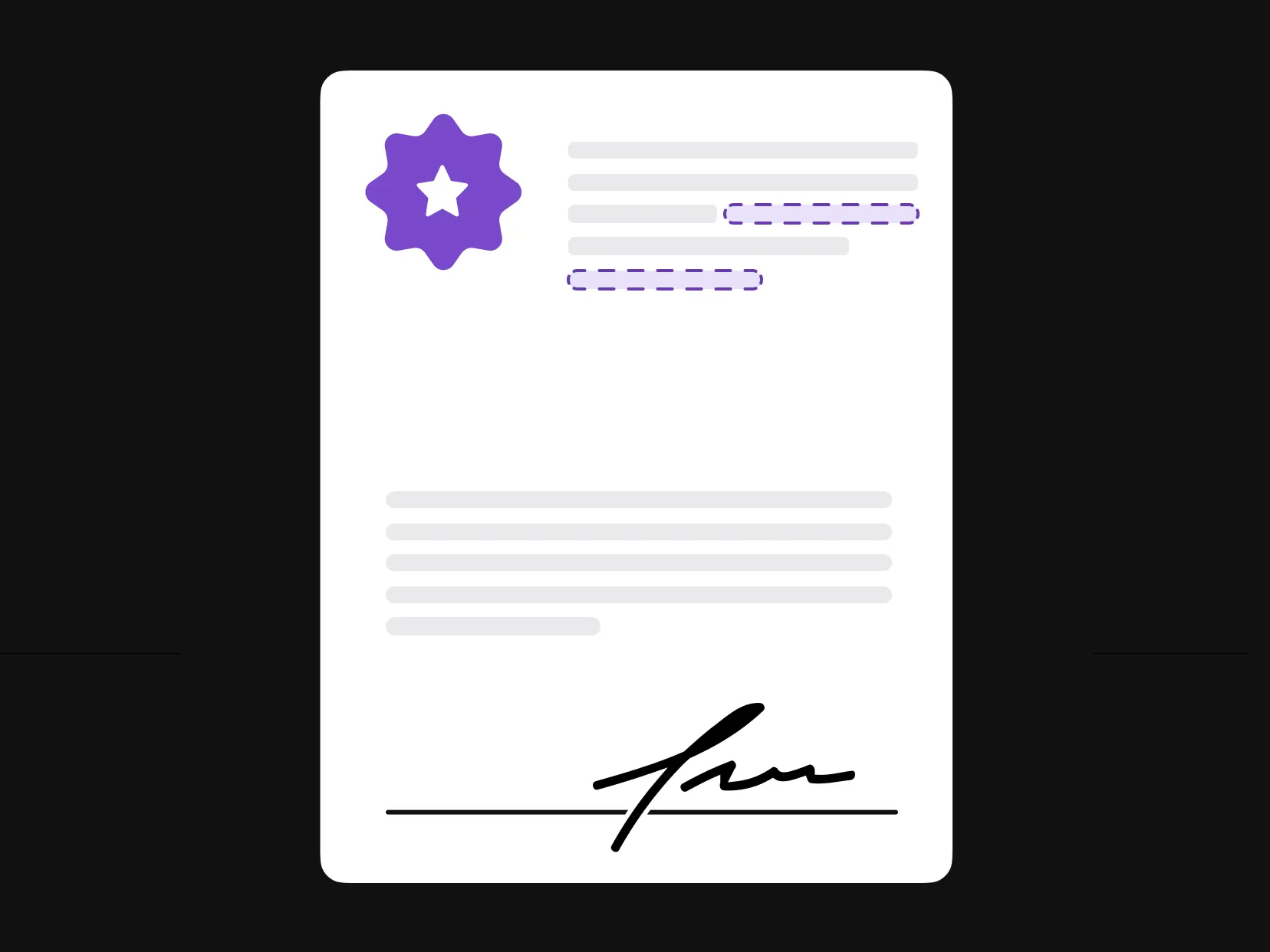Turning a skill or passion into a business is more doable now than ever. You don’t need a big budget or a storefront to get started. Many of the most profitable small businesses are built around simple tools, clear demand, and a strong online presence.
This guide covers profitable business ideas across industries like creative, service-based, digital, and more. Each one offers a practical way to earn income, grow at your own pace, and build something that fits your lifestyle.
Starting a small business
Running a small business is one of the most rewarding ways to work on your own terms. It can be part-time or full-time, built around a passion or a practical skill, and tailored to fit your goals. Across the U.S., there are more than 34 million small businesses in operation, and they play a key role in driving local economies and creating personal freedom for their owners.
With the right tools and a clear idea, you can launch something that’s both meaningful and profitable. If you're ready to take that first step, this guide on how to start a business can help you get organized. You can also explore the cost of starting a business to see what fits your budget.
15 profitable small business ideas
Some of the most profitable businesses in 2025 are also the simplest to start. With the right idea, the right audience, and a plan to grow, you don’t need a huge budget to build something that earns.
1. Dropshipping
What is dropshipping? Simply put, it’s a retail model where you sell products online without holding any inventory. Instead, customer orders are sent directly to a third-party supplier who handles shipping. This setup makes it one of the most profitable small businesses to start with minimal overhead.
Why it’s profitable
Dropshipping allows you to run an ecommerce business without warehouse costs, making it a great low-cost business idea with high profit. The key is finding in-demand products and marketing them effectively to your target audience.
What you need to get started
To launch your dropshipping business, start by performing product research and selecting your niche. Then, you’ll need to:
- Find trusted suppliers via platforms like Spocket or AliExpress
- Create an online store with GoDaddy Managed WooCommerce
- Develop a clear strategy for the way you price products
2. Digital product shop
A digital product business sells downloadable items like templates, online courses, e-books, or planners. Once created, products can be sold repeatedly with no additional production costs, making this a high-profit-margin business.
Why it’s profitable
The global e-learning market alone is expected to hit over $842 billion by 2030. Digital products are cost-effective to produce, great for solopreneurs, and easy to scale. With such a large market and no physical products, digital product shops have strong potential.
What you need to get started
All you need to start a digital product shop is a marketable idea and the tools to package it:
- A strong skill or niche topic (design, organization, education, etc.)
- Tools like Canva, Adobe, or Teachable to create your product
- A plan to build a website or use an ecommerce platform for selling
- Digital marketing to grow your customer base
- Time set aside to build your digital library and promote it
3. Mobile car detailing
Mobile detailing businesses provide professional vehicle cleaning services on-site at the customer’s home or office. It’s a hands-on service with flexible hours and high local demand, ideal for those who want a low-investment, physical business.
Why it’s profitable
As a service-based model with low startup costs (especially if you already own a car), this is one of the most profitable small businesses you can start locally. Many mobile detailers charge $150-$300 or more per job, depending on the work being done. Offering premium packages or memberships can significantly increase your revenue. Once your business is up and running, your expenses will center mostly around gas and replacing products and tools.
What you need to get started
You can get your mobile car detailing business rolling with:
- Car detailing tools and cleaning products
- Reliable transportation to move between clients
- An online booking system
- Google Business Profile and local ads
- Liability insurance and licenses if required in your state
4. Freelance social media management
A social media manager helps businesses grow online by creating and scheduling content, writing captions, engaging with followers, and analyzing performance. This work is remote, flexible, and a strong fit for anyone with digital marketing instincts.
Why it’s profitable
Social media is critical for businesses, but many owners don’t have time to keep up. Freelancers in this space can typically earn between $25 and $44 hourly per client, depending on their experience and results. You may have ongoing costs for digital tools that offer analytics, but many companies provide access to the specific software they want their social media managers to use.
What you need to get started
A few core skills and some tools can help you land your first clients:
- Knowledge of social media marketing tools and best practices
- Fluency across social media platforms
- Portfolio with content samples and client work (or mock projects)
- Social scheduling tools like Buffer or Meta Business Suite
5. Bookkeeping or virtual assistant business
Virtual assistants and bookkeepers help small businesses stay organized by handling admin tasks, finances, scheduling, and inbox management. This is a remote-friendly business that’s flexible, easy to scale, and built around everyday skills many professionals already have.
Why it’s profitable
Support services like these are in high demand, especially among growing startups. For those interested in being an entrepreneur, this type of business offers low overhead and steady demand. The average hourly pay for a virtual assistant is $27 per hour, and bookkeepers make an average of $24 per hour, depending on their experience. With low startup costs and recurring clients, it ranks high among the most profitable small businesses in the service industry.
What you need to get started
All you need to start your virtual assistant or bookkeeping business is:
- Experience with Google Workspace, QuickBooks, or project management tools
- Reliable communication and time management skills
- Outreach through LinkedIn, job boards, or referrals
- Clear service packages aligned with the profit margin definition for service-based work
6. Sell handmade or custom products
Handmade goods — like candles, jewelry, soap, pet accessories, or home décor — continue to carve out a unique space in ecommerce. Platforms like Etsy and social media make it easy to find a loyal customer base looking for something personal.
Why it’s profitable
The global handicrafts market is projected to reach $983.12 billion by 2030, making this one of the most profitable small companies for makers. Since many of these products have a strong markup due to time and supplies required, it also has the potential to be a high-profit-margin business. It does, however, come with ongoing costs like tools and supply replacement, and ecommerce platform fees.
What you need to get started
You don’t need a factory to launch — just creativity, materials, and a place to sell:
- Supplies and tools for your craft (jewelry findings, wax, fabric, etc.)
- Product photos and branding to stand out online
- An online store
- Social media for marketing
- A solid product pricing strategy
You may consider starting an LLC to limit personal liability.
7. Cleaning service
Residential and commercial cleaning services are always in demand. This hands-on business can be run solo or expanded into a small team, making it a profitable business idea for people looking to grow locally.
Why it’s profitable
This is a low-cost business idea with high profit potential. Startup costs are often under $1,000, and hourly rates typically range from $25 to $80, depending on the market and services. With recurring clients and minimal overhead, it offers dependable income. You’ll likely only have ongoing costs like gas and replacing supplies.
What you need to get started
To start a cleaning service, you’ll need:
- Basic cleaning products and equipment
- A service menu (standard, deep clean, move-in/out, etc.)
- A website for bookings and service details
- Google Business Profile and local ads
- Liability insurance and licenses, if required in your state
- Transportation to and from jobs
8. Tutoring or online coaching
Tutors and coaches work one-on-one or in small groups to help others build academic, professional, or creative skills. This can be a great fit for people with expertise in a specific subject area.
Why it’s profitable
The private tutoring market in the U.S is expected to grow by $28.85 billion from 2025 to 2029, and the demand for online coaching continues to increase as people seek remote, flexible learning. Hourly rates for tutors and coaches typically range from $25 to $80, depending on niche and experience. If you’re doing this independently rather than hiring coaches and tutors, it tends to have minimal startup costs beyond building a website and advertising.
What you need to get started
Starting a tutoring or coaching business typically requires:
- Expertise and credentials in your subject or coaching area
- Zoom, Google Meet, or other online coaching or meeting platforms
- A website for bookings, payments, and service offerings
9. Print-on-demand shop
Print-on-demand businesses let you design and sell products like shirts, mugs, posters, and totes without keeping inventory. Like dropshipping, orders are fulfilled through a third-party supplier. The differentiator is that you are responsible for designing your products, not the supplier.
Why it’s profitable
This model is considered one of the most profitable small businesses for artists and designers. You earn every time a customer places an order, and products are produced and shipped automatically. The global decorated apparel market is expected to exceed $68 million by 2030, so there’s strong demand in this space.
What you need to get started
Creatives and designers can start a print-on-demand business with:
- Design software like Canva, Photoshop, or Procreate
- Integration with POD platforms (Printful, Gelato, etc.)
- An online store or website
- Social media for marketing
10. Specialty food business
If you’ve got a knack for baking, cooking, or bottling unique flavors, turning your recipes into packaged products can be a lucrative business idea. Think spice blends, hot sauces, cookies, jams, or meal kits that bring your personal touch or local flavor to the world.
Why it’s profitable
In 2024, the U.S. specialty food store market alone reached $12.6 billion. They can have high startup costs, so many food makers start small at farmers markets or online to keep overhead low, and scale later with wholesale or subscription models.
What you need to get started
You’ll usually need the following to get started:
- Licensed kitchen space (as required by local laws)
- Safe packaging and accurate labeling
- A website for your catalogue and sales
- Understanding of shelf life, pricing, and food safety standards
- Local business licenses related to food, health, and safety
11. Photography or videography business
This business provides photo or video services for events, products, or social content. It can be one of the most profitable small businesses for creatives with technical skills and an eye for detail.
Why it’s profitable
Photography and videography businesses intersect with many other industries, such as weddings and events, real estate, e-commerce, education, and more. Many photographers and videographers charge $200+ per session, depending on location, services, and niche. If you already have equipment, your ongoing costs will revolve around transportation and editing software.
What you need to get started
One of the best parts of starting a photography or videography business is that you can start small and scale as you build your client base. To get started, you’ll need:
- A camera and lighting equipment of your choice
- Editing software
- A portfolio and/or website
- Defined niche (events, branding, real estate, etc.)
- Social media for marketing
- Reliable transportation
12. Home repair services
Home repair services cover a wide range of tasks, including light carpentry, drywall patching, painting, fixture installation, and general maintenance. This type of work is always in demand and offers a flexible, skill-based way to serve your local community.
Why it’s profitable
Homeowners often need help with small projects that don’t require a contractor but are too time-consuming or complex to do alone. Providers typically charge $50 to $80 per hour, depending on location, services provided, and expertise. Once you have a reliable toolset, you’ll just need to pay for transportation and replace supplies as necessary.
What you need to get started
When starting a home repair service business, a few tools can go a long way:
- Hand and power tools for repairs and installation
- Business license or insurance if required locally
- A website for bookings, service offerings, and payments
- Reliable transportation
- Supplies like nails, screws, and caulk, and more
13. Niche delivery or courier service
Local delivery services are booming. From flowers and baked goods to legal documents and same-day retail, a niche courier business can fill urgent gaps for local businesses and customers. You don’t need a warehouse; just a vehicle, a route, and a plan.
Why it’s profitable
The courier and local delivery services market in the U.S. is projected to exceed $594 billion by 2031. You can be a catch-all carrier, but having a niche, like legal or medical delivery, can help you stand out. With low overhead and strong repeat potential, this is one of the most profitable small companies to run locally.
What you need to get started
Starting a delivery or courier service usually requires:
- Dependable transportation and commercial auto insurance
- A website for service offerings, bookings, and payments
- A scheduling system
- Clearly defined service area
- A navigation system
- A Google Business Profile
14. Pet services
Pet owners are willing to spend on grooming, walking, sitting, and training. If you love animals, this can be a flexible and profitable small business that builds relationships and revenue.
Why it’s profitable
The U.S. pet industry topped $143 billion in 2023 and continues to grow. Services like walking and pet sitting offer the potential for high margins and repeat business with little overhead. Most pet owners provide everything their furry friends need, so you’ll likely only need to pay for reliable transportation (and maybe a few treats to keep in your pocket).
What you need to get started
Aside from a love for animals, you’ll need:
- Scheduling system and policies
- Insurance or bonding
- A website for service offerings, bookings, and payments
- Reliable transportation
15. Subscription box business
Subscription boxes deliver curated products on a monthly basis. These can focus on niches like snacks, self-care, hobbies, or themed goods. Customers tend to love them for their convenience and personalization.
Why it’s profitable
The subscription box service is growing rapidly, with an estimated $44.88 million market value by 2030. Subscription models create recurring revenue. Even small boxes with low prices can scale quickly with the right niche. With high retention rates and thoughtful curation, this can become one of the most earning business types for product-based entrepreneurs.
What you need to get started
To start a subscription box business, you will need:
- Product sourcing and packaging strategy
- Defined niche
- An online store with recurring payment options
- Shipping logistics and product presentation strategy
- Digital marketing strategy
How to choose the right small business ideas
The best small business ideas are the ones that fit your strengths, interests, and lifestyle. Keep these tips in mind when narrowing down your options:
- Play to your strengths: Look for ideas that match your skills, background, or experience.
- Choose something you enjoy: Building a business takes time, so it helps to work on something you're interested in.
- Think about your schedule: Some businesses require full-time hours, while others are more flexible.
- Start with what you have: Use the tools, space, or resources you already own to keep costs low.
- Research your market: Make sure there's real demand for what you want to offer.
- Consider scalability: Choose a model that fits now but can grow later if you want it to.
Tap into the most profitable businesses with GoDaddy
Starting a small business can open the door to more freedom, flexibility, and income on your own terms. With so many profitable business ideas to choose from, the key is finding the one that fits your skills, your schedule, and your goals.
GoDaddy has the tools to help you bring your idea to life. You can get a domain name that reflects your brand, set up web hosting for your site, and use GoDaddy Airo to build your online presence quickly and professionally. No matter what stage you’re in, GoDaddy is here to help.
Frequently Asked Questions
Which type of business is most profitable?
Service-based businesses are often the most profitable because they have low overhead and don’t require inventory. Digital product businesses, consulting, and specialized trades can also bring in strong margins, especially when you focus on a specific niche.
What are the most successful small businesses?
The most successful small businesses are usually built around consistent demand, strong customer relationships, and smart planning. Industries like personal services, ecommerce, home maintenance, and digital content creation are known for steady growth and repeat customers.
What business makes the most money?
Businesses that solve specific problems and reach the right audience often earn the most. High-income potential is common in areas like software, online education, real estate, and health-related services. However, small, local businesses can make great money when they’re run efficiently and serve a clear need.







